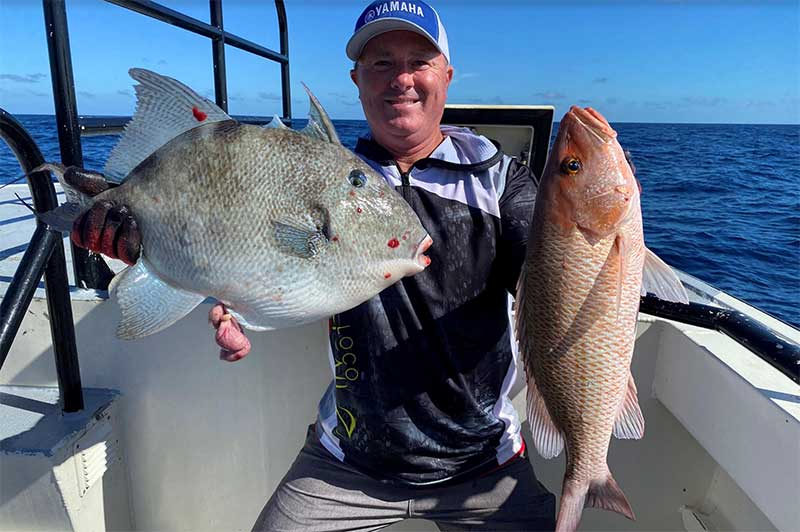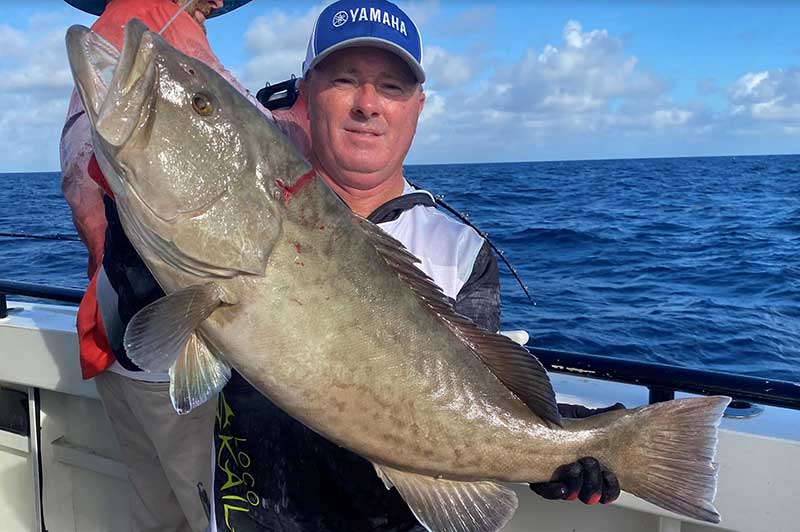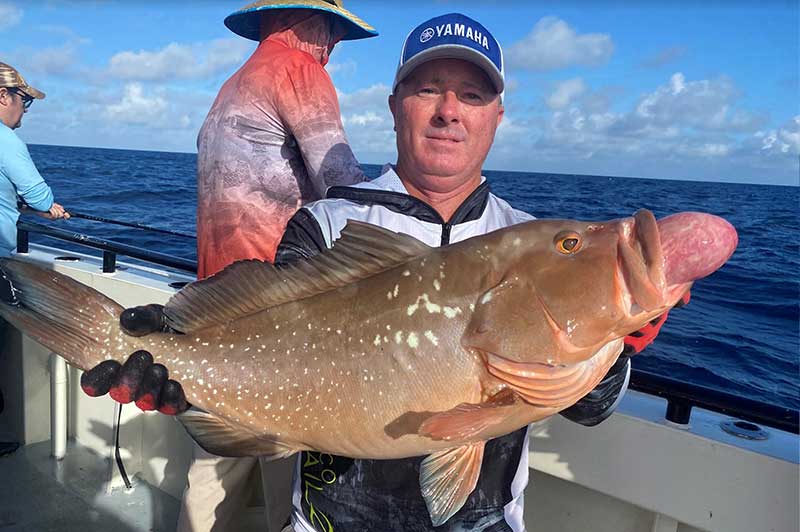
WEATHER
Well, it has been a little sporty this week as we dealt with hurricane Nicole and now, we are facing a cold front that is scheduled Sunday calming down Monday. We’re also coming up on the first quarter moon phase which means tides will slow down a little bit, but I believe some of the other variables will overcome the slowing currents. Typically, these big low pressures really get the fish moving and get them excited. Behind hurricane Nicole we should see the fish very stacked up hungry aggressive and ready to chew. However, you must wait until the water not only calms down but also clears up. When the water is really murky especially near shore following a big storm, the fish have a hard time feeding actively they don’t venture out because they’re easily preyed upon, and they have trouble finding their prey. Behind the storm once the water calms down and clears up the fish haven’t fed for a while, they’re very hungry and they tend to be very aggressive. The best fishing is always right before a low pressure or a few days behind a low pressure once waters stabilize calming down and clearing up. In summary, because of that instance and occurrence we not only have the backside of a low pressure this weekend we’re also on the front side of a cold front or another low-pressure making Saturday a great day to get out there on the water and take advantage of some really good variables that should help make the fishing really hot. Then once the cold front moves through Sunday it should have a little effect on the area, but it is a mild front so things will calm down Monday, and fishing looks good again Tuesday Wednesday and Thursday. Then we look to have a more serious front after Thursday.
INSHORE
Sheepshead are typically really active behind storms like this when the water is murky and stirred up. We should see those sheepshead very active around our docks Piers bridges and jetties behind hurricane Nicole. Typically, lighter tackle and minimal weight is a good idea to target the sheepshead. Also, with the cold front coming on the second half of the weekend that will further congregate the sheepshead on the local structures.
Snook fishing is one of those unique things that will get more active when the water gets nasty and the storms coming through a lot of anglers were able to take advantage of that fact and catch a lot of snook that got fired up during hurricane Nicole’s passing. We also will see those snuck active behind the storm once waters calmed down and clear up a lot of those fish will be moving further back into the Bay getting out of the passes on the beaches. Especially with the next cold front as water temperature continues to drop the days get shorter that will push a majority of fish back into the rivers, creeks, bayous, and upper Bay areas.
Redfish have been cruising back into the passes pretty consistently we’re seeing a lot of red fish start to get a little bit more congregated around local mangrove shorelines and grass flats. Behind this big storm it should further congregate the red fish and they should be easily found once waters calmed down and clear up I would imagine their congregation numbers will be strong. Also this storm will flush some mullet those mullet will get together in big schools and you’ll find some big bruiser large red fish following those schools of mullet trying to take advantage of prey items that get scared out of their hiding places from the big schools of mullet foraging in the grass.
Flounder action has been great recently prior to the storm on the backside once waters calmed down and clear up the flounder should regain their activity. Just keep in mind flounder our not open until December 1st so you can only catch and release them for the remainder of November. They love to hang out on the downside side of local structures from artificial reefs to rock piles to bridges to docks and almost any structure in between including grass lots and oyster bars. They love live shrimp mud minnows even small pin fish for live bait or slow-moving soft plastics or swim baits and sometimes even jerk baits if you’re able to get them down low remember flounder are on the bottom ambushing baits that travel right along or on the bottom.
Pompano action has been picking up around the area especially in those sandy passes along our local jetties our sandier areas of channel and anywhere those Pompano can cruise in cleaner clearer water looking for crustaceans. However, behind the storm most of our water is not going to be clear and it makes it difficult to find the Pompano in any good concentrations. However, if you’re able to find pockets of cleaner water you’ll find good numbers of Pompano.
Black drum are still active around the area they tend to do pretty well when the water gets murky and they’re one of those fish that kind of proliferate and get more excited when the salinity level is low behind big rains. A lot of time big rain event will push a lot of those black drum out of the Back Bay out of the bayous out of the top of the Bay Area and push them closer to the passes and closer to areas we more frequently fish.
Shark fishing around the area has slowed a bit because of the cooling water but locals are still finding plenty of good shark action in Tampa Bay and along our beaches mostly at night and this recent full moon brought plenty of beach shark fishing and Bay shark fishing action.
Mackerel are still prolific in the inshore waters we’re seeing a lot of mackerel at the mouth of Tampa Bay around our local Bay Area bridges and some of our fishing Piers. Macro love fast moving water where bait is present and prolific. Mackerel mainly chased fast moving flashy lures like trolling spoons casting spoons or lip diving plugs with a little bit of shimmer.
**REMEMBER, please help spread the word and knowledge on what to do if you hook or entangle a bird. NEVER CUT THE LINE, stay calm and reel in the bird and get all your line back and dehook them and release. Never leave any line in the water, if you accidentally hook a dock make sure to break the line off at the hook never cut your line. Seabirds in the area are more and more often showing up with line hanging off them and we are in danger of losing access to fishing areas due to this. While anytime a bird is in danger or having issues is concerning too, but a wave of support of closing areas to fishing due to negative bird interactions is extremely concerning to an already dwindling number of areas you can fish around Tampa Bay from a shoreline, dock, bridge or pier! Check out the NEW podcast we did with salt strong on this issue.

NEAR SHORE
Hogfish has been the big near shore talk of the town recently. While the gags are still pushing in and pretty prolific there’s definitely more hogfish action compared to gag grouper action near shore. The hogfish love their light tackle and live shrimp. We’re catching a lot of hogfish on our five-hour half days and 10 hour all days. The private charters definitely have the best chance and the most action for the keeper hogfish. You want to bring a lot of live shrimp around 30-to-40-pound fluorocarbon liters and minimal lightweight around one to two oz is good. We have an in-depth hogfish tips and tricks video on our website if you visit hubbardsmarina.com click fishing trips then click fishing video links there is a how to catch hogfish video and hogfish catching tips and tricks video and a technique video as well to go through gear rigs and what to use to catch plenty of hogfish. We’re finding them mainly around 30 to 70 foot of water on that shell bottom or the s Flat hard bottom around structures.
Gag grouper have really moved into the near shore waters or catching a lot of gags on our private fishing charters while trolling. We’re also catching some nice gags on our 10 hour all day trips using live pin fish or whole threadfin. It’s a great time to get out there and near shore and take advantage of the increase in gag grouper action near shore and along our beaches. As the water cools will continue to see more and more gags pull in near shore.
Mackerel or a super thick near shore along the beaches along our near shore artificial reefs anywhere from the beach out to about 70 to 80 foot. We’re catching a lot of mackerel while trolling out on our five-hour half days and 10 hour all days too. Mackerel action should continue as long as that water temperature is around 72 to 78 degrees.
Kingfish are around near shore as well not super prolific definitely not all out but we’re finding a few nice kingfish while trolling or flat line fishing on our near shore trips.
Lane snapper have been a mainstay of our nearshore trips unfortunately they are scheduled to close end of day November 14th or at 12:01 AM on November 15th. Making November 14th the last day to catch and keep lane snapper until January 1st of 2023.
We are still seeing some nice Mangrove snapper near shore especially on our 12 hour night snapper trips. Great time to get out there and target the mangrove snapper using live shrimp for bait or small chunks of cut threadfin on a double Snell rig. We typically utilize the live shrimp on a knocker rig and the double Snell on a fish Finder rig.
Red grouper fishery has closed, but they are hard to avoid when fishing near shore. We are still seeing lots of super aggressive small to medium red grouper, while it’s a great sign for the future of our fishery, it does create bit of an issue. You really need to be aware and make sure you get these guys up quickly, dehooked quickly, and back in the water quickly either with a venting tool or descending device if needed. If they are floating away dead then they will never get big enough for anyone to keep so make sure you are prepared with a good quality dehooking tool, like our hook extractor.

OFFSHORE
Offshore lately has been difficult with the mounting nasty weather. However we do have a little bit of weather windows coming up in the next few days that will capitalize on and should see stellar offshore fishing. Looks like the best days to get offshore coming up would be Saturday if you have a larger boat or middle of the work week if you have a smaller vessel. Offshore right now we’re targeting those gag grouper, trigger fish, mangrove snapper, Vermilion snapper, almacos, porgies, kingfish, tuna wahoo, yellowtail, and many others.
The guy grouper by it lately has been really good and the offshore waters and near shore waters but definitely offshore has been really active gag grouper as of late. We’re finding them anywhere from about 100 foot of water up to about 160 foot of water with great success. Gag grouper like big live baits or larger dead baits.
Mangrove snapper action has been going well offshore we’re catching them on double snow threadfin and medium live baits like pin fish. We’ve even had some anglers have really good luck on mangrove snapper using those smaller glow-in-the-dark slow pitch jigs at night.
Yellowtail have been surprisingly active and we’re definitely seeing a good number of yellowtail. We catch them mainly on small chunks of threadfin and also small pieces of squid too. They like lighter tackle and smaller hooks overall.
The pelagic action offshore has been mostly kingfish and blackfin tuna as of late but we did catch a really nice wahoo this past week while trolling on a 44 hour full moon trip. The wahoo was a lot shallower than we normally see them in only around 100 to 140 foot of water trolling a lipped plug between fishing spots. We’re seeing a lot of the kingfish on flatlines and also while vertical jigging too. Tuna are coming up trolling and on the flat line and while vertical jigging as well.
REMEMBER, when fishing deeper near shore of especially offshore the Descend Act is in effect so when in federal waters you must have a descending device or venting tool ‘rigged and ready’ so be prepared with that venting tool if you know exactly where to vent the fish, but if you don’t here’s some helpful tips. Plus, keep in mind using a descending device is super easy and doesn’t take much practice or as much precision as venting does, and right now you can get over $100 in FREE DESCENDING DEVICE GEAR by visiting this link and taking a short course on barotrauma mitigation techniques that will help more fish survive! The course is only about 10-15 minutes, and it will really help you preserve, protect, and proliferate our offshore fishery so spread the word.


Leave A Comment
You must be logged in to post a comment.